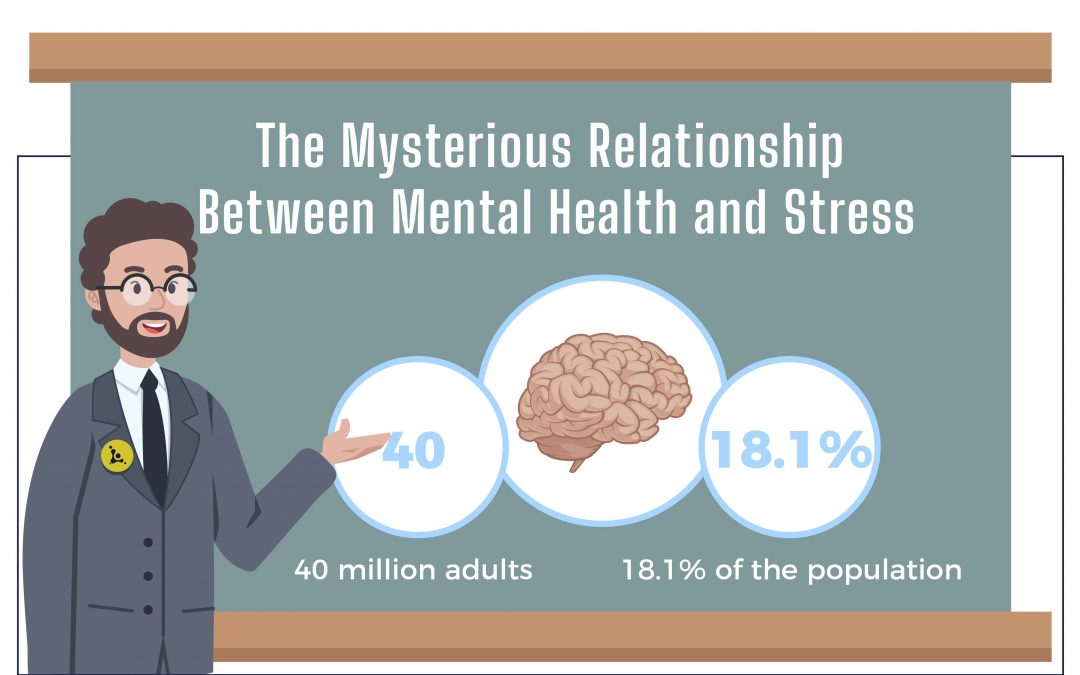This article is part 2 of a mini-series focusing on how the body reacts to stressors. This installment explores the importance of mental health awareness and how stress can deteriorate our mental health.
Mental health awareness has become an incredibly important topic of discussion as an increasing amount of people are impacted by issues of anxiety, depression, and Post-Traumatic Stress Disorder (PTSD). According to the Anxiety and Depression Association of America, anxiety disorders are the most common mental illness in the United States, impacting 40 million adults. This estimates to a whopping 18.1% of the population! With so many people affected by these issues, it is imperative to not only understand how stress impacts our mental health, but also to discuss what we can do to protect ourselves from mental health burdens. In this article, I hope to take a deep dive into the scientific relationship between mental health and stress. I will present more actionable tips and tricks in my next article focusing on ways to combat stress in daily life.
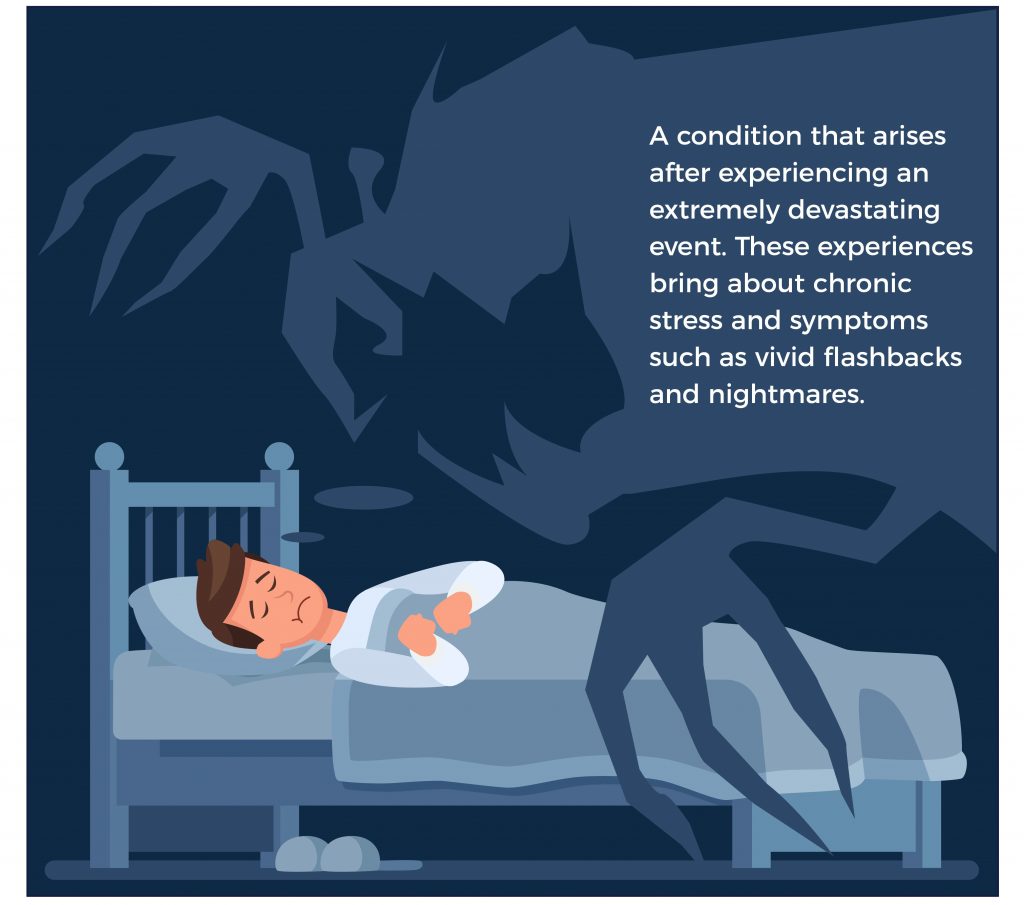
Although many research studies have shown a link between stress and mental health problems, the exact physiological mechanism of how stress relates to mental health is still yet to be uncovered. One surprising area of this connection is within our immune system. Under chronic stress, there is a prolonged activation of the immune system. This prolonged activation of the immune system has been linked to depression. While this is still not completely uncovered, 30% of people with depression have the increased immune system activation. This immune system activation produces an inflammatory response in the body. Because of this, scientists have hypothesized that anti-inflammatory drugs such as common NSAIDS like Tylenol and Ibuprofen may be able to combat depression when combined with antidepressant treatment. This fascinating combination of physiological reactions is being explored in various clinical trials to this day.
Sometimes the relationship between stress and mental health is apparent. Take the example of Post-Traumatic Stress Disorder (PTSD), a condition that arises after experiencing an extremely devastating event. This condition is common among veterans or in individuals who have experienced serious abuse. These experiences bring about chronic stress and symptoms such as vivid flashbacks and nightmares. There is also a physiological explanation for these symptoms. A specific brain region called the amygdala plays an important role in emotion and behavior, specifically the emotion of fear. Interestingly, brain imaging of individuals experiencing PTSD have increased amygdala activity. In my last article, I went over stress sensitivity and how individual stress responses can differ from person to person. This also applies to PTSD as individuals experiencing similar traumatic events can have differing severities of PTSD. While PTSD is a rather extreme case of anxiety disorder, it highlights just how far stress can play a role in our mental health status.
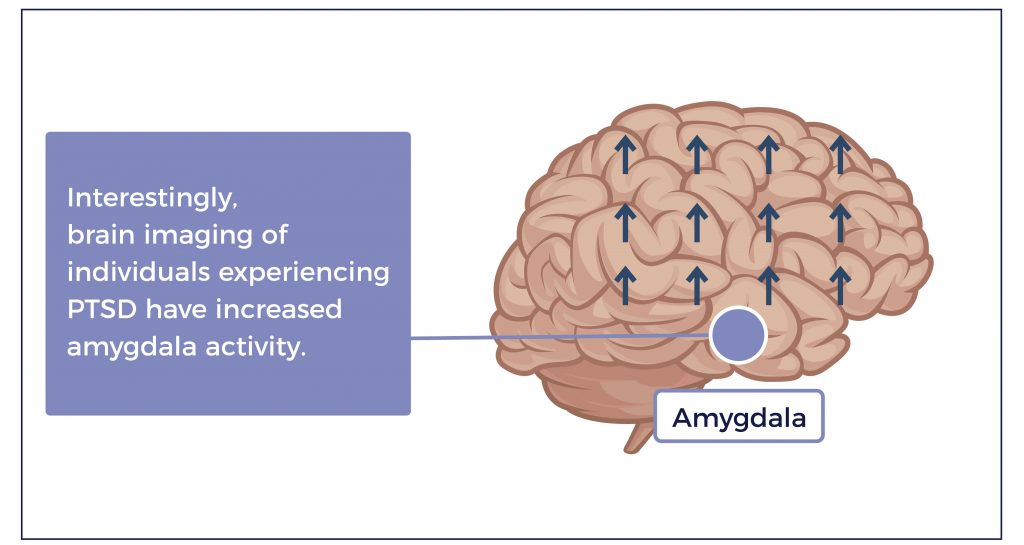
Now that we understand the seriousness of stress as it relates to our mental health, we can see why it is important to have positive daily routines. Currently, millions of people are self-quarantining due to the COVID-19 outbreak, and it has been increasingly difficult to develop daily routines such as exercise and healthy eating habits. Now, more than ever, it is crucial to determine ways of including these routines in our daily life. For example, depression is characterized by a decrease in the hormones dopamine and serotonin. When we exercise, these hormones are released by our bodies, and that is why exercise is sometimes a helpful way to combat depression. I recommend finding a workout program from home that will allow you to incorporate exercise into your daily life.
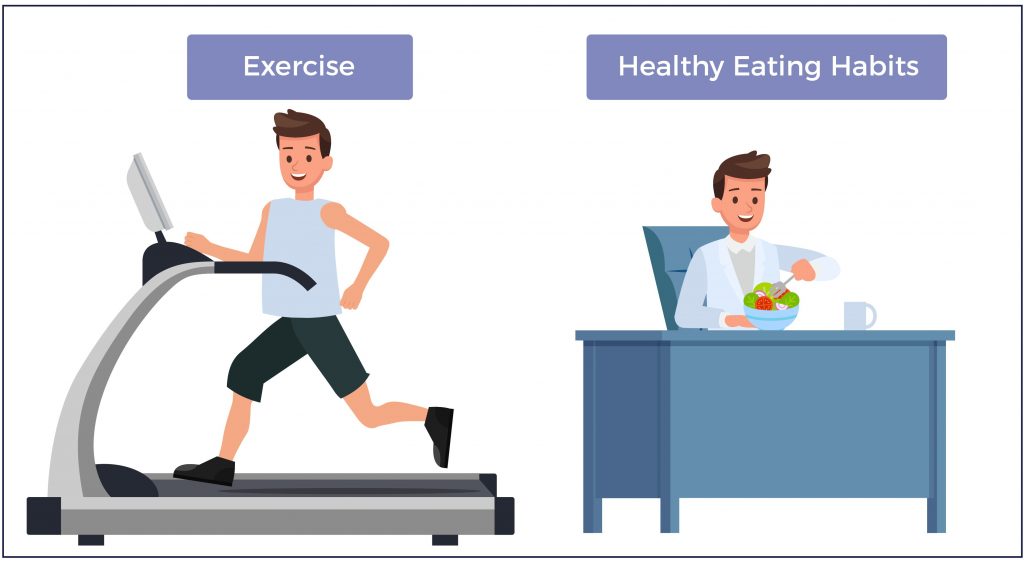
Despite the challenges that stress can bring to our mental health status, understanding this relationship can give us the tools to protect ourselves from chronic conditions such as anxiety and depression. While exercise is a key tool to preventing deteriorating mental health, it is not the only saving grace. Because of this, my next article will go more in depth to stress management techniques in our daily lives!
Until next time,
Professor K.
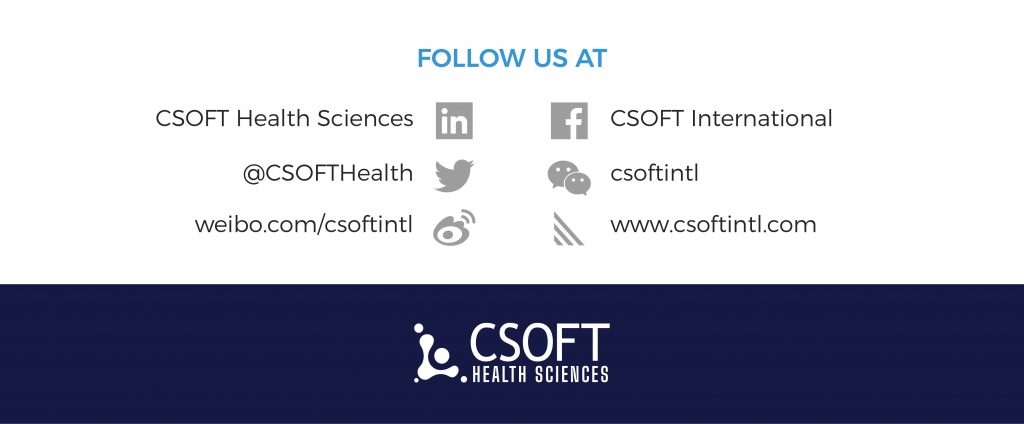
About CSOFT Health Sciences
CSOFT Health Sciences provides end-to-end medical translations for all phases of the product lifecycle, from pre-clinical to post-launch. We also specialize in market access consulting, medical writing, and CTD/eCTD submissions with the FDA, EMA, and NMPA. Our operations are compliant with ISO 17100 and certified in ISO 9001:2015 and ISO 13485:2016, ensuring our customized solutions meet the rigorous regulatory requirements of global submissions.
About CSOFT
CSOFT International is a leading provider of cross-border communications for enterprises seeking growth in global markets. Our expertise in localization, documentation, and branding encompasses a full range of end-to-end content and consulting services that we deliver in over 250 languages. With a focus in health sciences and smart technology, we work closely with our clients to deliver precision solutions to the challenges of engaging markets, consumers, and regulatory environments worldwide.
